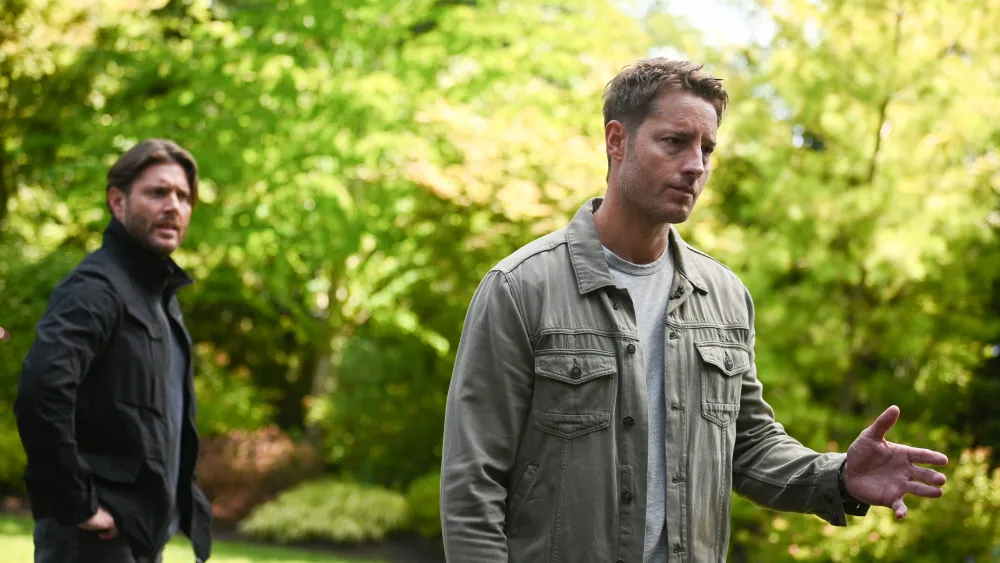Copyright thejournal

We need your help now Support from readers like you keeps The Journal open. You are visiting us because we have something you value. Independent, unbiased news that tells the truth. Advertising revenue goes some way to support our mission, but this year it has not been enough. If you've seen value in our reporting, please contribute what you can, so we can continue to produce accurate and meaningful journalism. For everyone who needs it. One-off amount I already contribute Sign in. It’s quick, free and it’s up to you. An account is an optional way to support the work we do. Find out more. Investigates Investigates Money Diaries The Journal TV Climate Crisis Cost of Living Road Safety Newsletters Temperature Check Inside the Newsroom The Journal Investigates Daft.ie Property Allianz Home The 42 Sport TG4 Entertainment The Explainer A deep dive into one big news story Sport meets news, current affairs, society & pop culture have your say Or create a free account to join the discussion Advertisement More Stories The report includes a look at the 'megatrends' that could cause bother for Ireland in years to come.Alamy What will Ireland be like 40 years from now? The government has made its best guess The projections examine long-term impacts of global trends on Ireland’s economy and public finances. 7.01pm, 5 Nov 2025 Share options PREDICTIONS DETAILING IRELAND’S future were laid out in a new report by the Department of Finance yesterday, detailing where the country will be in the coming decades – and the dangers posed along the 40-year journey. The projections were made in ‘Future Forty’, a new long-term economic assessment of Ireland’s needs to 2065 which examines long-term impacts of global trends and other shifts on Ireland’s economy and public finances. In the analysis, over 2,000 scenarios were modelled to come up with a ‘Central Scenario’ which draws from the central projections. What did they focus on, and what did they find? Overall, the report’s possible future outcomes point to a continued growth in living standards, but this progress will increasingly slow over the long-term. This was attributed mainly to demographic shifts, slowing productivity, climate costs and a slowdown in corporation tax receipts. The report attempts to predict a potential turning point in the housing crisis, where “pent-up demand” is finally met and the need for a largescale building programme is less vital. It also highlights that the challenges the EU is seeing by the Trump administration over the past year may not be going away anytime soon, and may in fact be the beginning of a “decoupling of national or regional economies from each other”. A caveat before we go further. The report is devised on a ‘no policy change’ basis which anticipates that the composition of tax revenue will remain steady over the time horizon – except for corporate tax receipts, which are currently deemed to be “windfall” and are projected to decline between 2030 and 2040. The report predicts that “pent-up demand” for homes is not expected to have been satisfied until at least 2040. However, that outcome is reliant on the government meeting an annual output of 60,000 newly built houses by 2030. Supply is assumed to reach 60,000 by 2030, a significant acceleration on the 30,300 delivered last year, “and then remain at that level until no longer required”. The authors said this would be a “significant acceleration” given there were “just 30,330 new dwellings” built last year. Advertisement To meet the targets, the State needs a boost to both the construction labour force as well as capital into the sector, in order to bolster the industry’s capacity. One scenario estimates that an extra 50,000 workers are needed to meet these targets. These labour issues reared their head at a recent construction industry conference, where company bosses revealed they’re sending their staff abroad for work because of uncertainty here, while the Taoiseach appealed for more migrant workers to boost Ireland’s output. The Department of Finance analysis further couches its predictions by noting that they are “entirely contingent” on future government maintaining that 60,000 new homes per year output for another decade at the minimum. Housing Minister James Browne has put on a brave face in response to the report, insisting today that he can “end the housing crisis in my term” in office. Housing Minister James Browne (second from right) has told reporters that he can end the housing crisis long before the report projects may be possible on the government's current output. File photoRollingNews.ie RollingNews.ie Although they are not modelled as part of the analysis, the report notes that there may be additional financial challenges for the State as an “indirect consequence” of the housing sector struggling. It warned that a failure to meet targets combined with continued growth in house prices “may reduce the purchasing power of many Irish households”. Aside from potentially dampening economic growth, it could also require the State to increase financial supports for a “larger share” of citizens and businesses. Another fear the report mentions is how climate breakdown may see some of the housing stock severely damaged or lost due to coastal erosion. What if protectionism is here to stay? A “potent threat” to the Irish economy over coming decades is ‘deglobalisation’, according to the Department of Finance’s report. This refers to the decoupling of national or regional economies from each other, following decades of deeper integration across most of the world via the EU and the World Trade Organisation. This would be partly due to the protectionist policies pursued by the US also taking further hold across other parts of the world’s economy. Under the future outcomes, the central scenario would see a ‘slowbalisation’ whereby trade and international investment holds steady but may not increase. A more risky scenario is a “gradual fragmentation” brought about by a disentangling of World Trade Organisation frameworks, resulting in trade and investment falling with different nations outside of the EU and other trade blocs. Related Reads Improvements in living standards to slow from 2030s onwards, says new report on Ireland's future On this, the report added: The overall impact of deglobalisation on Irish public finances is unclear, but it is very likely that the direction of the impact will be negative. For a small open economy, much of the State’s tax revenue is a direct or indirect result of global economic integration. Pensions and older people A major issue that impacts on the State finances and the capacity of its workforce is Ireland’s ageing population. The amount of people over the age of 65 is around 860,000, but this will nearly triple to two million in the future, under the report’s projections. What this means that instead of having four workers for every pensioner, there will only be two workers. This was recently highlighted by Central Bank governor Gabriel Makhlouf, who warned that the national retirement age will need to rise as Ireland’s population ages to meet this challenge. However, when launching the report yesterday, Finance Minister Paschal Donohoe said that the pension age is “settled” and there are no proposals to raise the age. Minister @Paschald has today published a report providing a long-term fiscal and economic assessment for Ireland out to 2065. #FutureForty Read More : https://t.co/yTp6WW71ZJ pic.twitter.com/ACsF5qNGXC— Department of Finance (@IRLDeptFinance) November 4, 2025 Trade-offs for any decision against raising the pension age include recent PRSI increases for employers, Donohoe said. Another issue highlighted is the cost of providing healthcare and long-term care, not only in the context of soaring costs but also in the context of our ageing population. Megatrends challenging Ireland The report’s authors flag how Ireland faces challenges in the the medium-to-long term thanks to what it calls “megatrends” affecting the advanced economies globally. These are categories it says are often summarised as the ‘Four Ds’, and are demographics, decarbonisation, digitalisation, and deglobalisation. These are all forecast to result in structural changes across productivity, labour, and capital, otherwise known as the key areas for any country’s economic growth. Readers like you are keeping these stories free for everyone... Our Explainer articles bring context and explanations in plain language to help make sense of complex issues. We're asking readers like you to support us so we can continue to provide helpful context to everyone, regardless of their ability to pay. Support The Journal Eoghan Dalton Viewcomments Send Tip or Correction Embed this post To embed this post, copy the code below on your site Email “What will Ireland be like 40 years from now? The government has made its best guess”. Recipient's Email Feedback on “What will Ireland be like 40 years from now? The government has made its best guess”. Your Feedback Your Email (optional) Report a Comment Please select the reason for reporting this comment. Please give full details of the problem with the comment... This is YOUR comments community. Stay civil, stay constructive, stay on topic. Please familiarise yourself with our comments policy before taking part. Leave a Comment Submit a report Please help us understand how this comment violates our community guidelines. Damaging the good reputation of someone, slander, or libel. Racism or Hate speech An attack on an individual or group based on religion, race, gender, or beliefs. Trolling or Off-topic An attempt to derail the discussion. Inappropriate language Profanity, obscenity, vulgarity, or slurs. Advertising, phishing, scamming, bots, or repetitive posts. Please provide additional information Thank you for the feedback Your feedback has been sent to our team for review. Leave a commentcancel Newly created accounts can only comment using The Journal app. This is to add an extra layer of security to account creation. Download and sign into the app to continue. Access to the comments facility has been disabled for this user View our policy ⚠️ Duplicate comment Post Comment have your say Or create a free account to join the discussion Department of Finance Future Forty ireland 6040 sixty forty sixty forty report News in 60 seconds Inquest jury returns verdict of unlawful killing in death of art student Emer O'Loughlin in 2005 Judge considering whether Enoch Burke should go to prison for contempt of court again beaver moon ‘Biggest and brightest’ Supermoon of the year to be visible until tomorrow evening Paris Pushes Back France suspends Shein website over sale of 'childlike' sex dolls as first store opens in Paris 37 mins ago INTERNATIONAL PROTECTION Fianna Fáil, Fine Gael and Sinn Féin all criticised for 'riding both horses' on immigration 52 mins ago PodcastThe Candidate When political training becomes a political problem 55 mins ago next four years Minister Browne: 'I aim to end the housing crisis in my term' The Last Word Matt Cooper learns on-air that TD Niall Collins also received media training from Ivan Yates stunning victory Democratic socialist Zohran Mamdani elected as New York City's youngest mayor in over a century InvestigatesFemale Genital Mutilation Over 330% increase in demand for Female Genital Mutilation treatment in Ireland Patricia Devlin Going Digital Government aiming for ‘digital wallet’ of life milestones by 2030 more from us Investigates Money Diaries The Journal TV Journal Media Advertise With Us About FactCheck Our Network FactCheck Knowledge Bank Terms & Legal Notices Terms of Use Cookies & Privacy Advertising Competition more from us TV Listings GAA Fixtures The Video Review Journal Media Advertise With Us Our Network The Journal FactCheck Knowledge Bank Terms & Legal Notices Terms of Use Cookies & Privacy Advertising Competition © 2025 Journal Media Ltd Terms of Use Cookies & Privacy Advertising Competition Switch to Desktop Switch to Mobile The Journal supports the work of the Press Council of Ireland and the Office of the Press Ombudsman, and our staff operate within the Code of Practice. You can obtain a copy of the Code, or contact the Council, at https://www.presscouncil.ie, PH: (01) 6489130, Lo-Call 1800 208 080 or email: mailto:info@presscouncil.ie Report an error, omission or problem: Your Email (optional) Create Email Alert Create an email alert based on the current article Email Address One email every morning As soon as new articles come online



